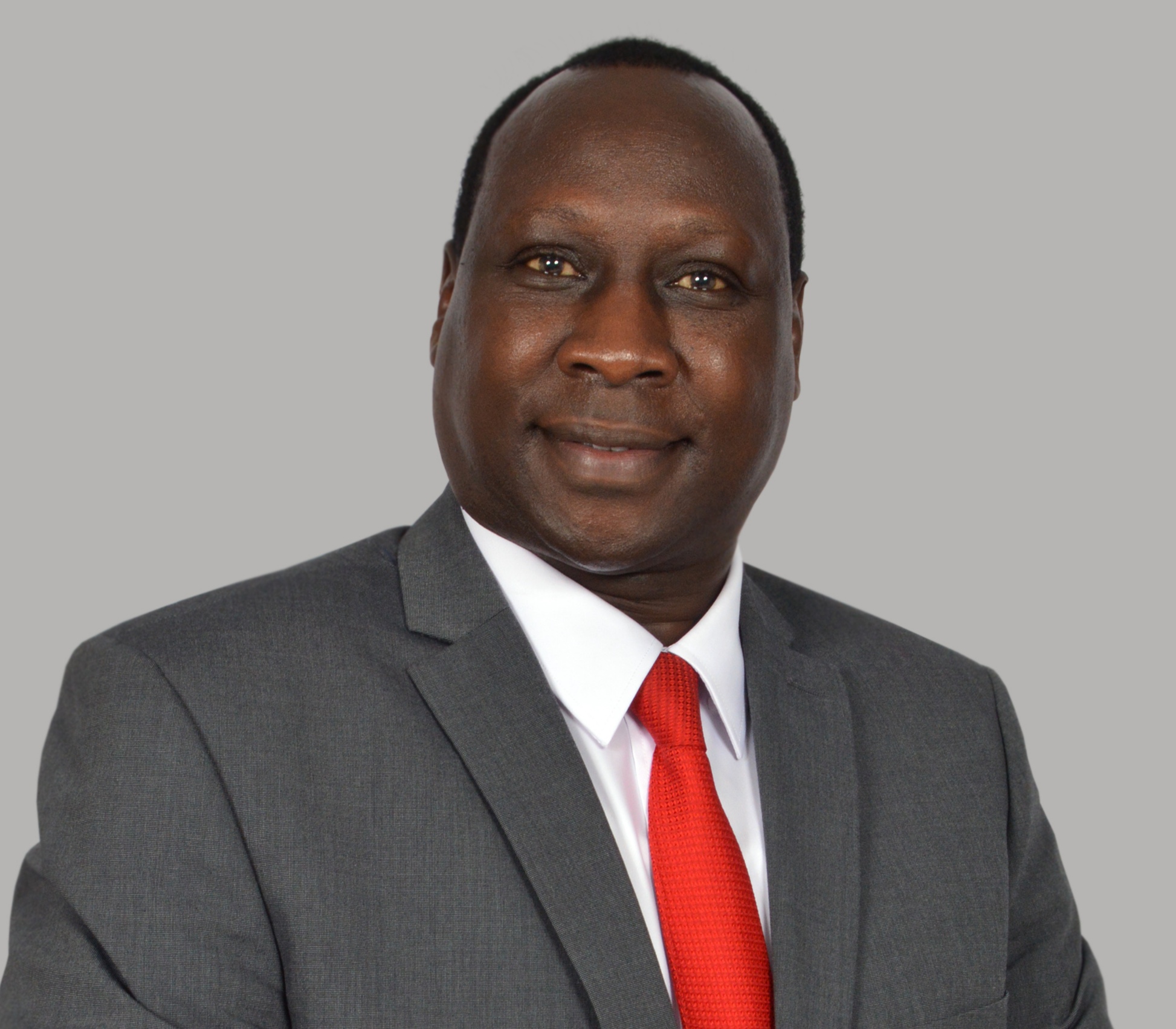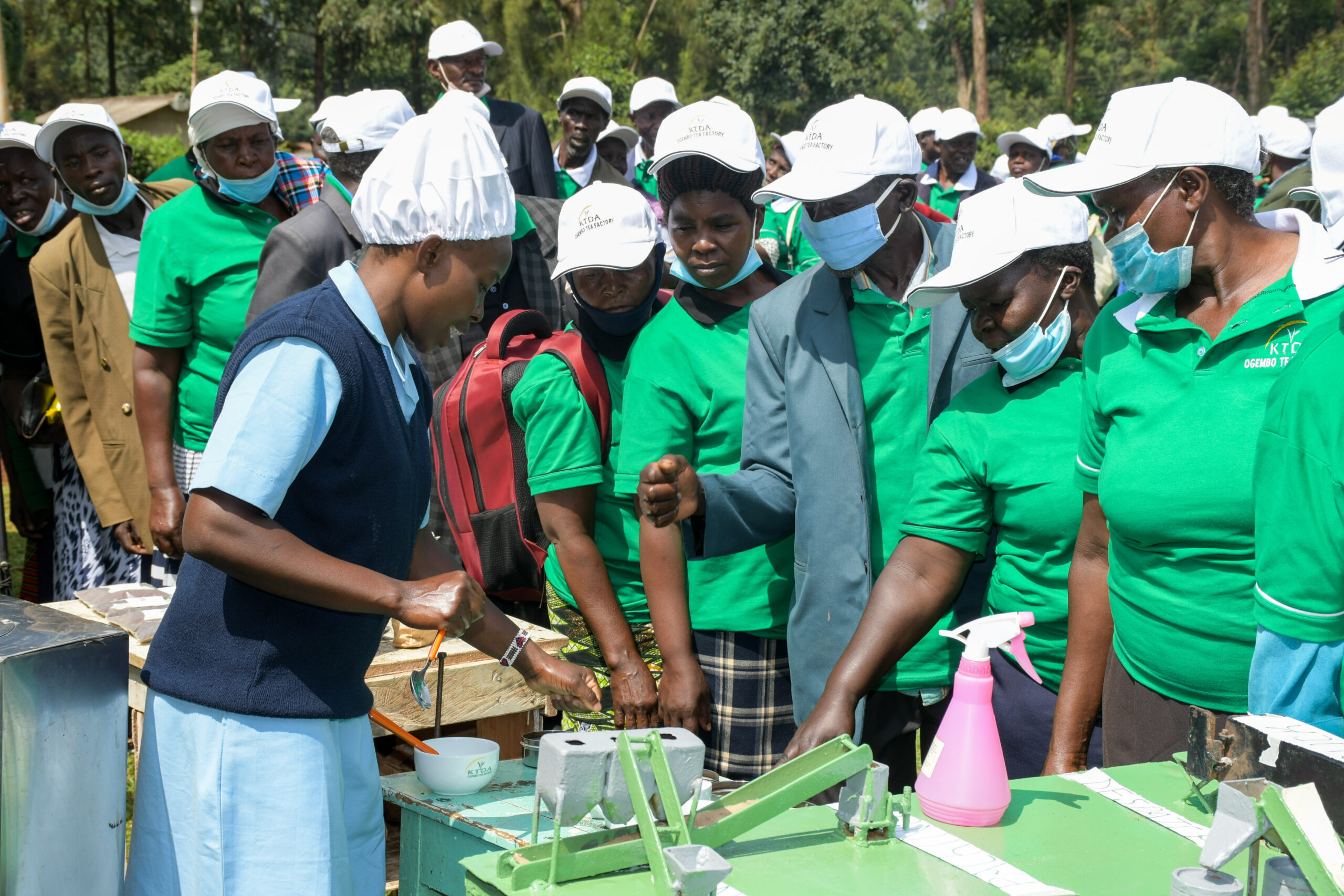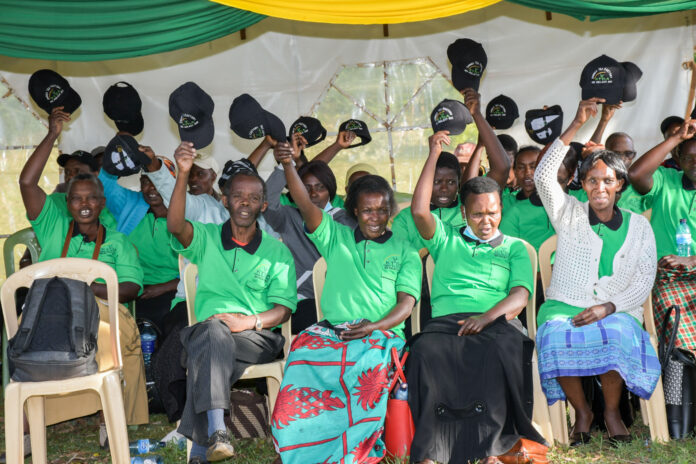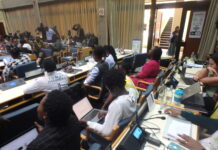By Thomas Mwiraria
Nairobi, Kenya: Kenya Tea Development Agency (KTDA) has been hailed for policy-making that has considered both women’s and men’s interests and concerns. The organization in partnership with UN Women formed a Gender Equality and Social Inclusion (GESI) Committee in 2022 to promote gender equality as an integral part of the business and a lot of effort has gone into supporting KTDA Staff, smallholder tea farmers, and other stakeholders in tea growing communities with partners like UN Women, ETP and Women Win.
“We began the integration of a gender perspective design and implementation with a view to promoting equality between women and men and combating discrimination,” said the KTDA Group CEO Wilson Muthaura, adding that,
Adding “Women head approximately one-third of the rural households in Sub-Saharan Africa are rural women who contribute to building social and economic capital. This remains concealed because they are invisible in plans and programs thereby denying them access to resources that could enhance their socio-economic contribution to society.”
“In the tea subsector which directly benefits seven million people directly. Gender mainstreaming allows responding effectively to the needs of the majority of shareholders- women, men, girls, and boys – rather than just men. And, in the tea sub-sector improving the effectiveness of beneficial policies for all the primary stakeholders” Muthaura noted.
Factory workers in five KTDA factories namely Michimikuru, Sanganyi, Kanyenyaini, Kapkoros, and Kangaita have been trained on sexual harassment eradication, labor laws, gender roles, and workplace ethics.
“At KTDA we have so far established Gender committees in fifteen factories and expanding, 613 gender champions trained, and 500 Bodaboda drivers trained on concepts used in gender and their definitions, Sexual and Gender-Based Violence abolition, Legal Frameworks that support women’s rights, Gender mainstreaming in tea factories, Gender audit and develop an action plan.” Muthaura went on to say.

At the same time, KTDA has enforced two third-gender rules to support the enhancement of gender equality and women’s economic empowerment, noted Ms. Grace Korir the KTDA General Manager of Human Resources and Administration.
The organization intends to continue developing gender programs in furtherance of gender mainstreaming. “This year, the KTDA GESI committee is looking to create an updated Gender policy and a whistleblowing system”
 Statistics show that almost 70% of economically active women in low-income food-deficit countries are employed in the agricultural sector and, therefore, play a crucial role in assuring food security.
Statistics show that almost 70% of economically active women in low-income food-deficit countries are employed in the agricultural sector and, therefore, play a crucial role in assuring food security.
“Gender-sensitive programming, therefore, is not only a social policy concern, but also and most importantly, an economic strategic orientation, which pays off in terms of higher female participation in the labor market, better targeting of private sector development incentives, broader access to finance and asset” said Muthaura.
Gender mainstreaming has been embraced internationally as a strategy for realizing gender equality. The concept of gender mainstreaming was first introduced at the 1985 Nairobi World Conference on Women. It was established as a strategy in international gender equality policy through the Beijing Platform for Action, adopted at the 1995 Fourth United Nations World Conference on Women in Beijing, and subsequently adopted as a tool to promote gender equality at all levels.
The United Nations Economics Commission for Europe (UNECE) report of 2009 on strengthening social inclusion, Gender Equality, and Health Promotion in Millennium Development Goals (MDGs), underpinned the fruits of gender mainstreaming. Gender-sensitive programming ensures an equal world where everyone has access to the opportunities they need to build a life they value.














